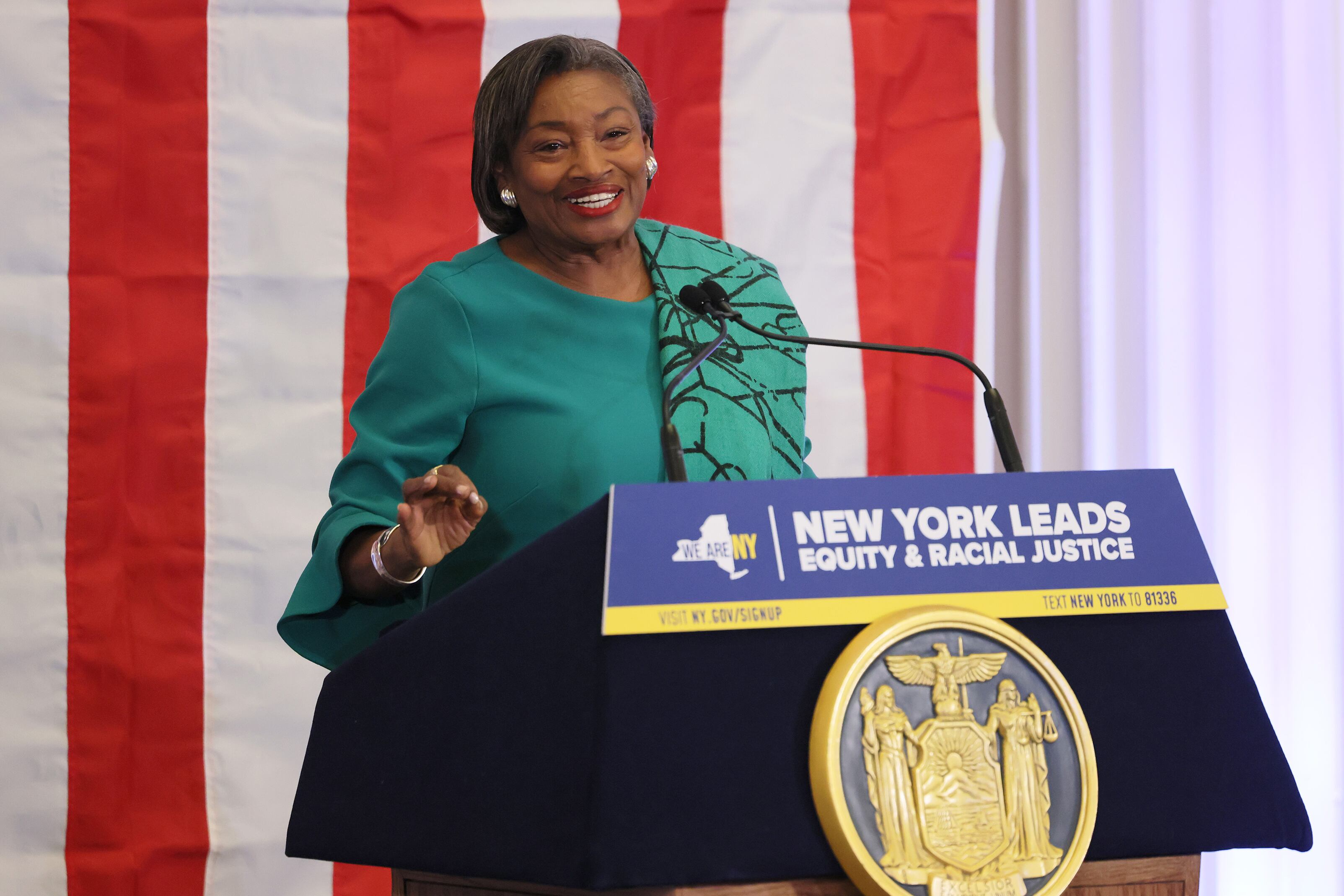Sign up for Chalkbeat New York’s free daily newsletter to get essential news about NYC’s public schools delivered to your inbox.
Pushing back against Gov. Kathy Hochul’s proposal to ban cellphones from “bell-to-bell” in schools, New York lawmakers want to give districts more flexibility in setting their policies — and guarantee that students will not face suspensions due to cellphone violations.
The proposed changes came Tuesday as Senate Democrats unveiled their response to Gov. Kathy Hochul’s $252 billion executive budget, which would send $37.4 billion to schools across the state — a nearly $1.7 billion increase from the prior year’s budget. The governor’s budget proposal includes a $13.5 million plan to help school districts implement smartphone bans, amid growing concerns over their impact on student learning and mental health.
Under the governor’s proposal, students would be required to disconnect from their devices from “bell to bell,” including during classes, lunch, and in the hallways. School districts would have discretion over how to ensure compliance, but all would be required to identify at least one method through which students can store their devices during the school day.
However, lawmakers in the state Senate are seeking changes to the proposed legislation that would give districts leeway to allow students to use their devices “during non-instruction time.” Lawmakers also want districts to be required to consult local representatives and families, as well as be prohibited from suspending students over violations of the cellphone policy.
State Senate Majority Leader Andrea Stewart-Cousins said lawmakers agreed with Hochul that “getting cellphones out of the hands of our children is a benefit to everyone.”
“We’ve heard from superintendents who want a little bit of flexibility, so we have injected that into the conversation,” Stewart-Cousins added during a Tuesday press conference. “But there is no doubt that we know that students will be better off if their phones are not with them and they’re able to concentrate on their lessons.”
The proposed changes to Hochul’s cellphone policy came as part of the Senate’s “one-house budget resolution,” its rebuttal to the governor’s executive budget. (The state Assembly’s one-house budget resolution did not address the issue).
Senate lawmakers also proposed changes to the state’s school funding formula that would see additional dollars sent to schools across the state — up $680 million from Hochul’s Foundation Aid proposal. Those changes would drive additional money to city schools, with lawmakers proposing an update to how the formula accounts for regional costs in the Hudson Valley and New York City.
Despite concerns from the Senate, Hochul said Tuesday she remained committed to pushing for a “bell-to-bell” cellphone restriction.
“I’ve not had time to digest every part of what the one-houses show, but I’m committed to fighting for bell-to-bell,” she said. “This is what the experts say, this is what the parents want, this is what the teachers want. I mean, our teachers are saying… if a student has it banned during a class, then they have it during recess, and then they come back, the next teacher has to be the enforcer.”
In New York City, principals currently can set their own cellphone policies during school hours. Among those with restrictions in place, some schools collect devices at the start of the day, while others store them in cubbies or locking pouches. And though the city’s Education Department seemed poised to implement a systemwide policy last year, it stalled after intervention by Mayor Eric Adams.
When schools Chancellor Melissa Aviles-Ramos testified at a budget hearing in Albany earlier this year, she urged lawmakers to allocate more funding to implement a statewide school cellphone ban, arguing $13.5 million was insufficient to cover statewide costs.
“Roughly 800 of our schools have already signed up to do this work,” she told lawmakers in January. “What we don’t want to tell them is, ‘Continue to self-fund while we pay for other schools to get on the bus.’”
Julian Shen-Berro is a reporter covering New York City. Contact him at jshen-berro@chalkbeat.org.






